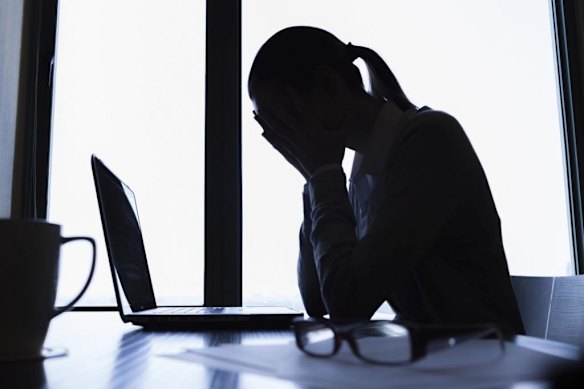When I finally take a seat at the dinner table, no one understands my distress. My parents are both teachers, my brothers are early childhood educators, and they see absolutely no reason I can’t just turn off my phone and ignore it. Theoretically, of course, I could. But there’s a niggling sense that perhaps if I could simply explain myself better, if I could connect with these people who think I’m some sort of monster, this would all go away.
Almost six years later, I know that’s a futile goal. The internet is not the forum for nuanced, thoughtful conversation, where both sides consider each other’s humanity and accept that we’re all flawed, vulnerable individuals who, for the most part, are just trying to do our best. The tone of debate has slipped into one of utter contempt, where anyone we disagree with is fundamentally morally inferior to us, deserving of name-calling, mockery and humiliation. It doesn’t matter if our words hurt them, if their mental health is impacted, or if they’re suffering.

Online pile-ons often start with the notion of seeking justice, but end up causing untold harm.
Listening to that angry voice note in my parents’ house was one of the moments that inspired my fascination with online pile-ons. I wanted to know why a stranger’s criticism felt so bad. Was I particularly sensitive? Did I just need to toughen up, or is it a completely normal human instinct to seek to be understood? To be horrified by the thought of being hated by others?
In researching my novel, The Worst Thing I’ve Ever Done, I spoke to public figures who had experienced the kind of social media backlash most of us can’t even imagine. Journalists, television personalities, actors, comedians, podcast hosts – people whose reputations had been irreparably damaged by online outrage. In some cases, they’d made identifiable mistakes. They’d posted an offensive picture or used the wrong language or laughed along with a joke they probably should’ve challenged. In others, the genesis for the pile-on was less clear-cut. They were perceived to have profited off a part of their identity when they didn’t deserve it. Or a joke they’d told a decade earlier had been unearthed, judged in a context that didn’t exist when they originally told it.
Regardless of what triggered the outrage, the emotional experience of being publicly shamed was eerily similar. They told me they hated themselves more than any of the people condemning them. They were humiliated, wanting to disappear, questioning every part of who they were and what value they possibly had to offer.
They stayed inside, sometimes for days or weeks on end, sometimes months. One woman told me that when she eventually did go outside, a man in the street approached her to scream at her. She was with her son, who afterwards was inconsolable.
Their mental health plunged to depths they’d never experienced. One woman told me her parents had taken turns sleeping outside her bedroom.
They lost jobs. Even years later, they’d be booked for a paid opportunity and get a call last minute to say it couldn’t go ahead. There had been complaints from the same, small group of people who had started the pile-on in the first place. These individuals kept tabs on their career. They contacted brands and clients and charity organisations. There was no indication of when they’d stop, of when they’d decide the target of their outrage had appropriately paid the price for their sins.
The people I spoke to were angry. How perhaps they, as a woman, had been destroyed for a thoughtless mistake, shafted from the kinds of media roles that are offered to famous men with a history of domestic violence. They were indignant about the distortion of scale. How a social media post is deemed more harmful than almost anything else. They were bewildered by the online voices who use social justice as an excuse for cruelty.
Their mental health plunged to depths they’d never experienced. One woman told me her parents had taken turns sleeping outside her bedroom door, terrified about her risk of suicide. Another said she was suicidal and reached out to the high-profile person who was relentlessly posting about her. She asked for grace, she said she wasn’t OK, could this all please stop. She never received a reply, and the posts continued.
Overwhelmingly, the people who suffer the most from online pile-ons are women, people of colour and other marginalised communities. We seem to hold them to a particularly high standard because their identities make them inherently political; we expect them to practise limitless compassion, to live by the kind of pure moral virtues we don’t expect from a straight, white man.
Many of these public figures told me they would never go on the record to talk about the long-term impacts of their pile-on. They were terrified it would reignite the spectacle. But recently, something changed. Several have been willing to share their stories, to have a conversation about the way we engage with each other online, and where it leaves us. They spoke to me for The Pile-On, a podcast about what happens when the internet turns on you.
Now that we live online, we have to confront the very real ways the internet has eroded our capacity for civil discourse. How social media platforms are designed to make us self-righteous and angry, how we’re primed to watch for transgressions, how rage sometimes seems like the only uniting force in a time of bewildering division.
Contempt, we know, makes progress impossible – in relationships, in reaching consensus, in finding solutions. When we treat the people we disagree with as fundamentally morally inferior or unworthy of respect, and with complete indifference for their hurt or hardships, we cannot expect to change their minds. And is that not the goal if a cause is truly important?
People are not interchangeable with ideas or ideologies, however convenient it would be if they were. And when we flatten them, trying to compress identity into a thing we can hold and destroy in the palms of our hands, the consequences are brutally, psychically painful.
Yet we have created an environment where a person at the centre of outrage has no right to suffer, and no chance at redemption. Where it feels, in the thick of it, like there is no escape.
Empathy is often what fuels our moral righteousness, what starts the avalanche of a pile-on. But would our conversations not be more productive, more meaningful, if we extended that empathy towards the people we engage with online, too?
Lifeline: 13 11 14
The Worst Thing I’ve Ever Done (Atlantic Books) by Clare Stephens, out now.
Get the best of Sunday Life magazine delivered to your inbox every Sunday morning. Sign up here for our free newsletter.

